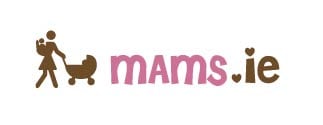Home › Forums › ASK THE EXPERT › Skincare Expert › New Elave Baby Aqueous Cream
- This topic has 0 replies, 1 voice, and was last updated 11 years, 10 months ago by
Anonymous.
-
AuthorPosts
-
June 7, 2012 at 4:26 pm #14577
Anonymous
InactiveBaby Aqueous Cream Sulfate Free
Prompted by latestresearch and dermatology recommendations on the negative effects of the harsh foaming agent SLS/Sulfate/Sulphate in skin products – Ovelle have just launched an SLS Free Baby Aqueous Cream 250g tube.
Sodium Lauryl Sulphate (SLS) is a detergent. As far back as 2007 NICE Guidelines on the management of childhood eczema recommended that Aqueous Cream BP (containing SLS) should not be used as a leave on emollient. Research carried out by Bath University showed that SLS can damage the skin barrier even in volunteers who do not have eczema. SLS is found in many moisturising creams and wash products. Therefore it is advisable to use products that do not contain SLS particularly if the skin is already impaired due to skin conditions such as eczema or for baby’s delicate skin.
Scientists at Bath University found that aqueous cream thinned the skin after a few weeks of use. This, they say, is because it contains a detergent father than just moisturisers. Another expert said most GPs seemed unaware of official advice not to prescribe the cream as a moisturiser. Eczema, which affects millions of adults in the UK, happens when the skin gets dry and cracked. One way to reduce the discomfort and keep it under control is to use moisturising creams.
Aqueous Cream, sold at every pharmacy, is an emollient cream, and is officially recommended as an alternative to soap when washing. However, it is also frequently recommend by doctors for its moisturising properties – one recent poll suggested 9 out of 10 GPs recommended it for childhood eczema.
The University of Bath study, published in the British Journal of Dermatology looked directly at its effects on the skin when used regularly. Volunteers, none of whom had eczema, rubbed it into their forearms every day over a 4-week period. Scientists then compared skin samples taken before and after. They found the thickness of the stratum corneum, the outermost skin layer, was reduced by about 10% in this time.
Professor Richard Guy supervised the research, conducted as part of a PhD course by researcher Manda Tsang. He said the sodium lauryl sulphate detergent in the cream was affecting a thin layer of fats lying on top of the skin.
He said: “Our study has found that rubbing aqueous cream containing sodium lauryl sulphate into the skin thins this protective barrier, making the skin more susceptible to irritation by chemicals. So to use this cream on eczematous skin, which is already thin and vulnerable to irritation, is likely to make the condition every worse.”
The national Eczema Society recommends alternatives such as white soft paraffin or even other types of emollient without such a high sodium lauryl sulphate content. Margaret Cox, chief executive of the National Eczema Society, said: “Aqueous cream contains sodium lauryl sulphate, which is a fairly heavyduty detergent. Sadly it is widely used – one it’s cheap and two, it’s prescribing habit”
Professor Michael Cork, an academic dermatologist from the University of Sheffield, said despite advice from the National Institute of Health and Clinical Excellence in England and Wales not to prescribe of recommend aqueous cream in this way, it was still widespread practice. He recommended that people with eczema use a formulation without the detergent instead. “This layer of skin will grow back over time, but if you’re using aqueous cream on it every day, it simply won’t get a chance.”
For more information on the Elave products click here: Elave Skincare
-
AuthorPosts
- You must be logged in to reply to this topic.

